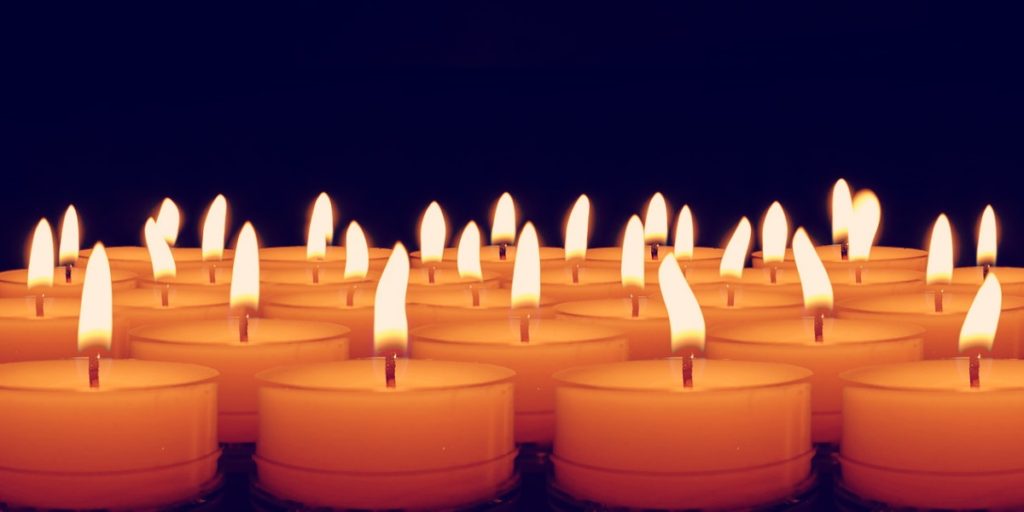A Practical Plan for Dealing with Grief During the Holidays
/ Holidays and Special Days : Eleanor Haley
The main tenant of our Practical Guide for Grieving During the Holidays is the thought that one of the best ways to make it through the holidays after a loss is to plan ahead. Regardless of what you do, there is no way to avoid having to deal with pain and the sadness; no one can offer you a way around this. So as difficult as it is, we recommend you accept right now that parts of the holidays are going to be hard.
But, by thinking about the elements that will be the hardest for you this holiday season, you can minimize stress and lessen the likelihood of being caught of guard by difficult situations. Try and complete the plan with those you will be spending the holidays with, this will open the lines of communication about worries and anxieties and it will allow for discussion about how to support one another.
Practical Plan for Dealing with the Holidays After a Loss:
1. Identify which individuals you will be spending the holidays with. Who will be present for events, traditions, and celebrations?
- Make a list of the individuals you may want to plan with.
- Often times these individuals will be dealing with the same loss.
- If you will be spending the holidays alone or with people far removed from your loss, grab a journal or a notebook and complete the plan on your own.
2. If you decide to involve family and friends in making a plan, call a family meeting
- Plan the meeting date early enough so people can think, process, and plan.
- Try and have everyone present. If individuals can’t make it you can have them on speakerphone or Skype.
- You could also start a Facebook group, private blog, or e-mail chain for group conversations and updates.
- Don’t overlook the children. Even the youngest family members need to have a chance to express feelings and concerns. It’s also good for children to feel heard
3. Decide what to do about tradition
- Identify the rituals and traditions that will be the hardest.
- Allow each member of the group to discuss what will be hardest about these identified moments.
- Brainstorm ways to make these elements of the holidays easier. Also discuss ways you can support one another during these times. In the end you may decide to keep the event or tradition the same, change it, or skip it until next year.
4. Discuss roles and responsibilities
- Your loved one may have held several roles and responsibilities during the holiday season.
- Take a little time to make sure there aren’t any roles, big or small, that will need to be filled or changed (i.e. Who will plan the holiday meal, who will get the tree this year? Who will plan the holiday gift budget?)
- Some people may not feel comfortable stepping into their deceased loved ones shoes to fill these roles, respect their feeling and don’t push.
- Make sure the roles and responsibilities don’t fall too heavily on one person.
5. Finalize your plan
- You may need some time to think about the plan so schedule follow up time to finalize if needed.
- Brainstorm or discuss support needs you think you will have (i.e. I may need someone to help me decorate the tree) and discuss how you can offer support to others (i.e. I will help you buy the grandchildren gifts this year).
- Let others know the things you just can’t muster up the energy to do this year, like shop for gifts or attend holiday parties. Small things can take a lot of energy when you are grieving so give each other permission to opt out of things.
- Make a plan to follow up with those who aren’t present.
6. Communicate with children affected by the loss
- The holidays are hard for children because, although they are sad about the loss, they still may be excited for the same reasons we all were as children. Let them know they don’t need to feel guilty about enjoying themselves.
- Ask them to let you know if they start to feel sad.
- Make a special code word they can use if they need a break or some space.
7. If you haven’t already, take time to think about you and how you will take care of yourself during the holidays
- Make a plan for how you will cope when things get really tough. Will you go to a support group, call a friend, go to church, exercise, journal, etc?
- Give yourself permission to cry, even in public. Don’t feel bad when you find yourself sobbing in the middle of JCPenny because you saw a gift they would have liked or their favorite song came on over the loud speaker.
- Set aside time for self-care. Preventatively schedule an hour here and there for ‘mental health’ time.
8. Find ways to incorporate your love one in the holidays. This is the best way to feel close to your loved one and fill their absence. You may want to find at least one or two ways to incorporate your loved one in each tradition and event that you identified as potentially being difficult.
Stay up to date and tips for coping with grief. Subscribe to receive posts directly to your e-mail inbox.
We wrote a book!
After writing online articles for What’s Your Grief
for over a decade, we finally wrote a tangible,
real-life book!
What’s Your Grief? Lists to Help you Through Any Loss is for people experiencing any type of loss. This book discusses some of the most common grief experiences and breaks down psychological concepts to help you understand your thoughts and emotions. It also shares useful coping tools, and helps the reader reflect on their unique relationship with grief and loss.
You can find What’s Your Grief? Lists to Help you Through Any Loss wherever you buy books:






Leslie December 26, 2015 at 10:19 pm
I am the family outcast. There is a lot of mental illness in my family. I tried too hard to make Christmas happen for my son and his wife only to find myself wishing, wanting to escape. My son is abusive and self involved. He has pain issues and other issues (molested at 10 by his father) but won’t get help. I can no longer watch as he treats his wife like a slave and is completely convinced that Marijuana is a cure for his miserable attitude. If it was i would be all for it. I see no positive changes in him when he had all the poor he can get in him. He’s become a tirant just like my father. It’s too painful to lose my granddaughter. It’s too painful to be around my son. I can’t take this any more. I’ve spent all of December crying. I have a therapist but she takes December off. I just can’t take the pain and i don’t know how to move forward any more.
Litsa December 28, 2015 at 8:40 am
Leslie, have you ever considered attending and alanon, naranon or coda group? These are groups for family members of those using substances, or family members who have struggled with codependency (especially with individuals who have a negative/toxic impact). These groups can be helpful and a good supplement to therapy.